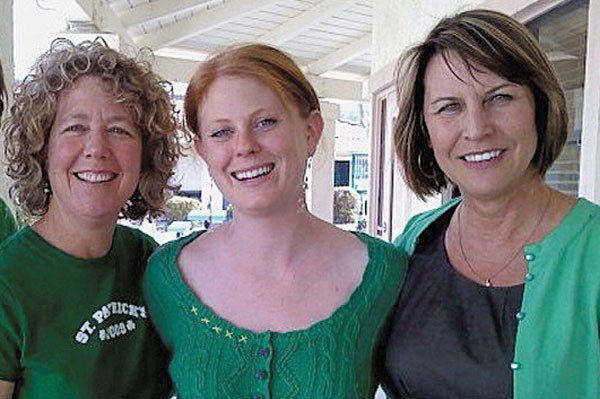After 25 years of working under a
”
broken
”
system, a veteran educator hopes to break away from the pack and
launch a school on her own terms.
After 25 years of working under a “broken” system, a veteran educator hopes to break away from the pack and launch a school on her own terms.
“There was just this constant dissatisfaction with my job because I knew that every day I’m working, it’s under this system that is so broken,” said Sharon Waller, a speech therapist at Luigi Aprea Elementary School who hopes to open the Gilroy Prep Charter School by August 2011. “In special education, in general education, the way the board functions, the way the money’s spent – all these factors came together to say that this is just unacceptable for me personally.”
Waller envisions Gilroy Prep as an institution guided by common sense methods that will allow teachers to hone in on what works and scrap what doesn’t.
“We’ll cut everything extraneous out and do what we know works,” Waller said. “It’s not rocket science. It’s not that hard to teach kids to read and write well.”
So far, Waller is joined by colleagues Karen Humber and Kristyn Corley.
After years of mulling the idea of opening a charter school, “I thought I was going to pass out on the floor when they said ‘I’m in,'” Waller said.
Stepping into uncharted territory after 25 years with the Gilroy Unified School District brings with it its share of apprehension, but the potential gains were great enough to convince Humber, she said.
“We have such a similar goal for these children, such a similar vision of what works,” Humber said.
The organizers hope to model their proposal after successful charter schools like the Knowledge is Power Program, which operates 82 schools in 19 states, including successful middle and high schools in San Jose. Waller also visited Sixth Street Prep School in Victorville – a school that has shown astounding academic success despite its large number of poor and English-as-a-second-language students – with a group of teachers from Eliot Elementary School. Waller and her colleagues hope to model their own practices after those at Sixth Street, which Eliot also has begun adopting.
Waller visited her first charter school 10 years ago in Seattle and said she was amazed by what she observed.
“When I saw what they were able to do in terms of addressing the needs of students, just having complete autonomy and flexibility with their funding, the types of programs they were using – that’s when I started becoming very curious,” Waller said.
Though the details are fuzzy, Gilroy Prep’s organizers are hammering out a proposal they hope to bring before Gilroy Unified trustees in August. The school would begin with 180 to 200 kindergarten through second grade students and eventually expand through the eighth grade. Organizers would like to open the school in a downtown location.
Their goals include reducing behavior referrals, reducing referrals to special education classes, and focusing on student character. Most important, the trio wants to get students at the proficient or advanced level on state standardized tests and reduce the academic disparity between Latino students and their white counterparts. The school would operate on a longer school day, take the emphasis off homework and allow teachers to react quickly to the needs of their students.
Though trustees were still waiting to hear more about the charter school, they said they were receptive to the idea.
“I’m definitely open to a charter school, but the devil is always in the details,” trustee Denise Apuzzo said. “There are a lot of things that still need to be discussed.”
After witnessing the fall of El Portal Leadership Academy, a former Gilroy charter school that closed last spring when audits revealed financial mismanagement and failing academics, trustees and Superintendent Deborah Flores said they were approaching the newest proposal with caution.
“If I had a concern, it would be about the finances,” Flores said. “The smaller you are, the harder it is to make the current funding levels from the state work.”
Unlike her experience with El Portal, which was run by the Mexican American Community Service Agency, Flores’ experience with charter schools in her previous district was positive.
“I think they have some good ideas,” Flores said after meeting with Waller, Humber and Corley. “The concepts that they are embracing are similar to concepts the district is embracing.”
Still in the early stages, the organizers hope to meet with trustees in the coming weeks and rack up community support. They will need to secure the signatures of at least 50 percent of parents of the expected student population. They have the educational bases covered but are still in need of legal and financial support. Until the charter is approved and funding begins to flow from the state, all work is volunteer work, they pointed out.
“It’s a labor of love at this point,” Corley said.
Given the community’s previous experience with a charter school in Gilroy, “We’ll be under a great deal of scrutiny,” Waller said. “But we’re up for the challenge.”














